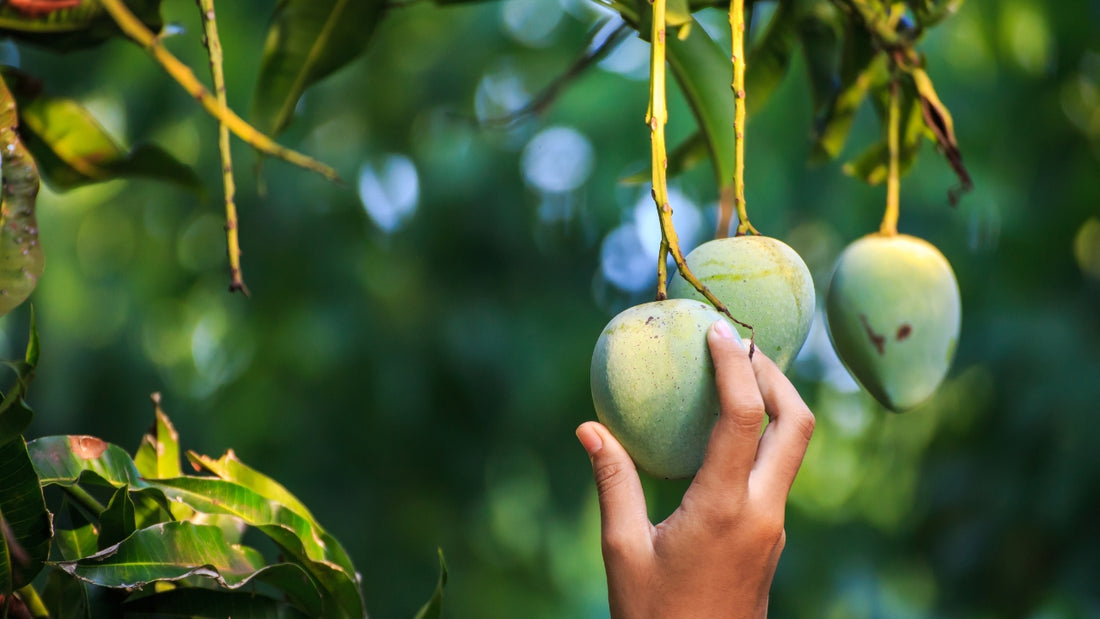
Organic Gardening for Beginners: Growing Fruit Plants Successfully
Starting an organic fruit garden can be a rewarding and fulfilling endeavor. Whether you're looking to grow juicy mangoes, sweet guavas, or vibrant strawberries, organic gardening ensures that your fruits are healthy, nutritious, and free from harmful chemicals. In this guide, we will provide beginner-friendly advice to help you embark on your journey to growing a successful organic fruit garden.
Why Choose Organic Gardening?
Organic gardening is a method that relies on natural processes and materials to cultivate plants. Here are some reasons why you should consider organic gardening for your fruit plants:
Healthier Produce: Organic fruits are free from synthetic pesticides and fertilizers, making them safer and healthier to consume.
Environmental Benefits: Organic gardening practices improve soil health, reduce pollution, and promote biodiversity.
Cost-Effective: By using homemade compost and natural pest control methods, you can reduce gardening costs.
Sustainable: Organic gardening supports long-term soil fertility and water conservation, ensuring a sustainable gardening practice.
Getting Started with Organic Gardening
- Selecting the Right Location
Choose a sunny spot in your garden as most fruit plants require ample sunlight for optimal growth. Ensure the area has good drainage to prevent waterlogging, which can harm the roots.
- Preparing the Soil
Healthy soil is the foundation of a successful organic garden. Here’s how to prepare your soil:
Test the Soil: Conduct a soil test to determine its pH level and nutrient content. Most fruit plants prefer slightly acidic to neutral soil (pH 6-7).
Add Organic Matter: Incorporate compost, well-rotted manure, or leaf mold into the soil to improve its structure and fertility.
Ensure Good Drainage: Amend heavy clay soils with sand or compost to enhance drainage, and add organic mulch to retain moisture in sandy soils.
- Choosing the Right Fruit Plants
Select fruit plants that are well-suited to your local climate and soil conditions. Here are some beginner-friendly options for different regions in India:
Tropical Regions: Mango, banana, guava, papaya
Subtropical Regions: Orange, lemon, pomegranate, fig
Temperate Regions: Apple, pear, plum, strawberry
Opt for disease-resistant varieties to minimize pest problems and increase your chances of a successful harvest.
- Sourcing Quality Plants
Purchase your plants from reputable nurseries or online suppliers. Look for healthy, disease-free plants with strong root systems. You can also grow fruit plants from seeds or cuttings, although this may take longer to yield fruit.
Tips for Maintaining a Healthy Organic Fruit Garden
- Watering Wisely
Deep Watering: Water your fruit plants deeply and infrequently to encourage strong root growth. Avoid shallow watering, which can lead to weak roots.
Morning Watering: Water in the morning to minimize evaporation and reduce the risk of fungal diseases.
Mulching: Apply a layer of organic mulch around your plants to retain moisture and regulate soil temperature.
- Organic Fertilization
Use organic fertilizers to provide essential nutrients to your fruit plants. Here are some options:
Compost: Rich in nutrients and beneficial microbes, compost improves soil health and fertility.
Vermicompost: Produced by earthworms, vermicompost is a potent organic fertilizer that enhances plant growth.
Manure: Well-rotted animal manure is an excellent source of nitrogen and other nutrients.
Organic Liquid Fertilizers: Use seaweed extract or compost tea as foliar sprays for a quick nutrient boost.
- Natural Pest Control
Keep your fruit plants healthy by using organic methods to manage pests and diseases:
Companion Planting: Grow pest-repelling plants like marigold and basil alongside your fruit plants.
Handpicking: Regularly inspect your plants and remove pests by hand.
Homemade Sprays: Use neem oil, garlic spray, or soap solution to deter pests.
Encourage Beneficial Insects: Attract predators like ladybugs and lacewings to your garden to control pest populations.
- Pruning and Training
Prune Regularly: Remove dead or diseased branches to promote healthy growth and improve air circulation.
Shape Your Plants: Train your plants to grow in a desirable shape, such as an open vase for better sunlight penetration.
Success Tips for Organic Fruit Gardening
- Start Small and Expand Gradually
Begin with a few easy-to-grow fruit plants and expand your garden as you gain experience. This allows you to manage your plants effectively and enjoy a steady learning curve.
- Be Patient and Persistent
Fruit plants take time to establish and produce a bountiful harvest. Be patient and persistent, and remember that organic gardening is a long-term commitment.
- Keep Learning and Adapting
Stay informed about organic gardening practices and adapt to changes in weather, pests, and soil conditions. Join local gardening groups or online communities to share experiences and learn from other gardeners.
- Celebrate Small Wins
Celebrate your successes, no matter how small. Harvesting your first organic fruit is a rewarding experience that makes all the effort worthwhile.
Starting an organic fruit garden is a fulfilling journey that brings numerous benefits to your health, the environment, and your wallet. By following these beginner-friendly tips and techniques, you can grow healthy, delicious fruits right in your backyard. Embrace the joy of organic gardening and watch your fruit plants thrive with vibrant, chemical-free produce.





